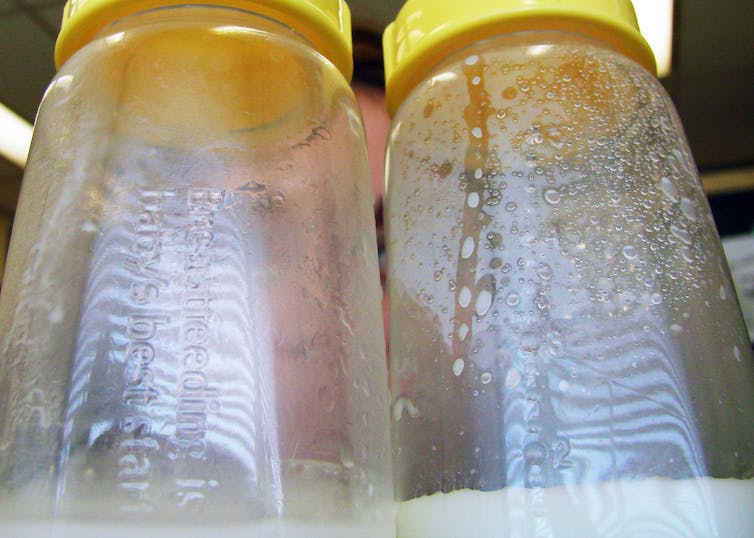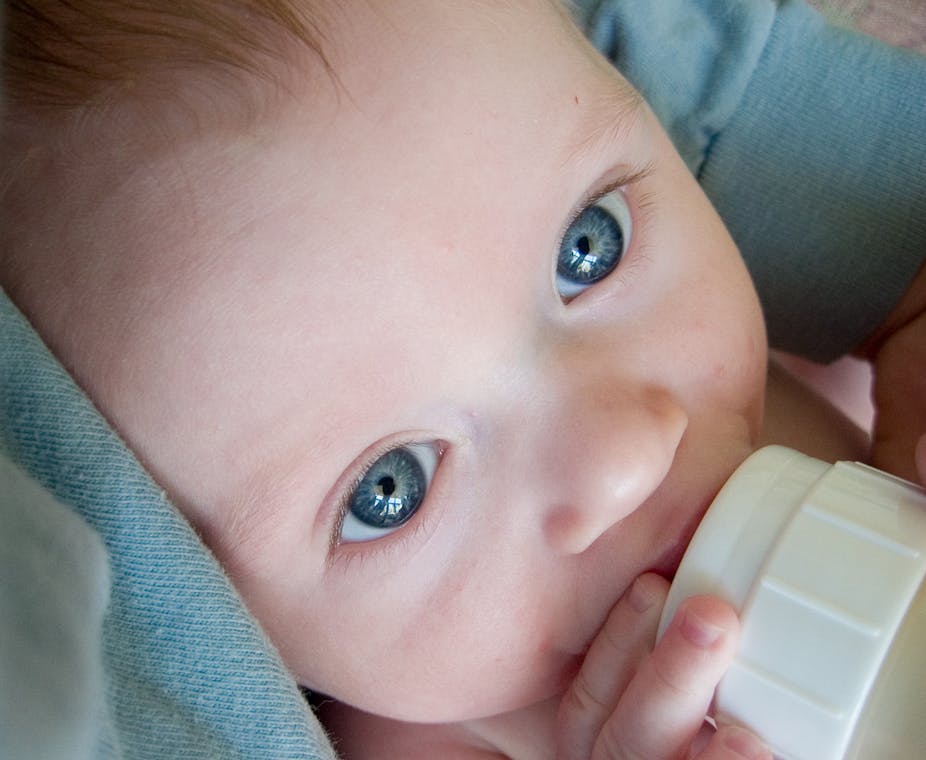Wet nursing, where a woman other than the mother breastfeeds a baby, is a practice as old as history itself. In modern times, the availability of refrigeration and breast pumps has enabled women to also share expressed breast milk. But until recently, there was no easy way to connect mothers who needed milk for their infant with women who had milk to spare.
Social media has supplied a forum for such connections. And two organisations, Human Milk 4 Human Babies and Eats on Feets, maintain more than 150 Facebook groups that facilitate milk sharing.
Organised on a regional basis (there are 11 groups in Australia), these Facebook groups allow mothers who need milk or those wish to donate it to advertise their situation publicly and connect with others in a similar situation. All negotiation about milk transfer occurs privately between the individuals involved, and selling milk is prohibited.
Some health bodies have expressed alarm at the possibility of widespread breast-milk sharing and issued warnings against the practice. There are concerns that diseases could be transmitted via breast milk, that poor hygiene could negatively affect milk quality or result in bacterial contamination; or that milk could be contaminated with drugs.
But these warnings haven’t reduced the popularity of the practice and it’s estimated that there were tens of thousands of milk transactions worldwide in 2012.
So why would mothers take these risks and obtain milk from a stranger over the internet? A soon-to-be-published study I conducted with 97 milk donors and 41 milk recipients explored this very question. I found that all mothers who had sought donor milk were unable to fully breastfeed - some had breast cancer, some were taking medications not compatible with breastfeeding, and others had chronic low milk supply.

They understood that there were risks in using another mother’s milk, but were keenly aware of similar and additional risks associated with using infant formula. Many had also tried infant formula and found their baby had a bad reaction to it. Milk recipients had weighed the risk associated with formula feeding against the risk of using another mother’s milk and decided that the latter was more acceptable.
The study also explored what mothers did to manage or reduce the risks of milk sharing. All of them took some action to reduce the risks of milk sharing, especially avoiding disease transmission and drug contamination. They screened donors for lifestyle and health factors, obtained donor medical records and heat-treated milk. They formed real relationships with their donors and rejected milk that didn’t meet their requirements.
But few recipients were mindful of the risk of poor hygiene in milk expression or storage. Many donors didn’t follow recommended practice – only half said they washed their hands before expressing milk, for instance. All the recipients in the study were satisfied with their decision to feed their baby another woman’s milk and none indicated any adverse consequences except that it exposed them to the negative views of others.
It seems mothers are aware there are risks involved in milk sharing but they’re not all aware of all the risks. They could benefit from harm minimisation education that provides them with strategies to minimise risk. Such strategies are routinely applied to formula feeding.
Organisations, including hospitals, should have policies for managing milk sharing. Policies that prohibit milk sharing are not only unethical, but will fail to stop the practice and prevent the involvement of health providers in risk mitigation.
Women have always shared milk with one another, the internet has simply provided a new way of connecting. Although there are risks associated with milk sharing, some women believe they can reduce these to an acceptable level. They should be supported in their decision rather than censured.

